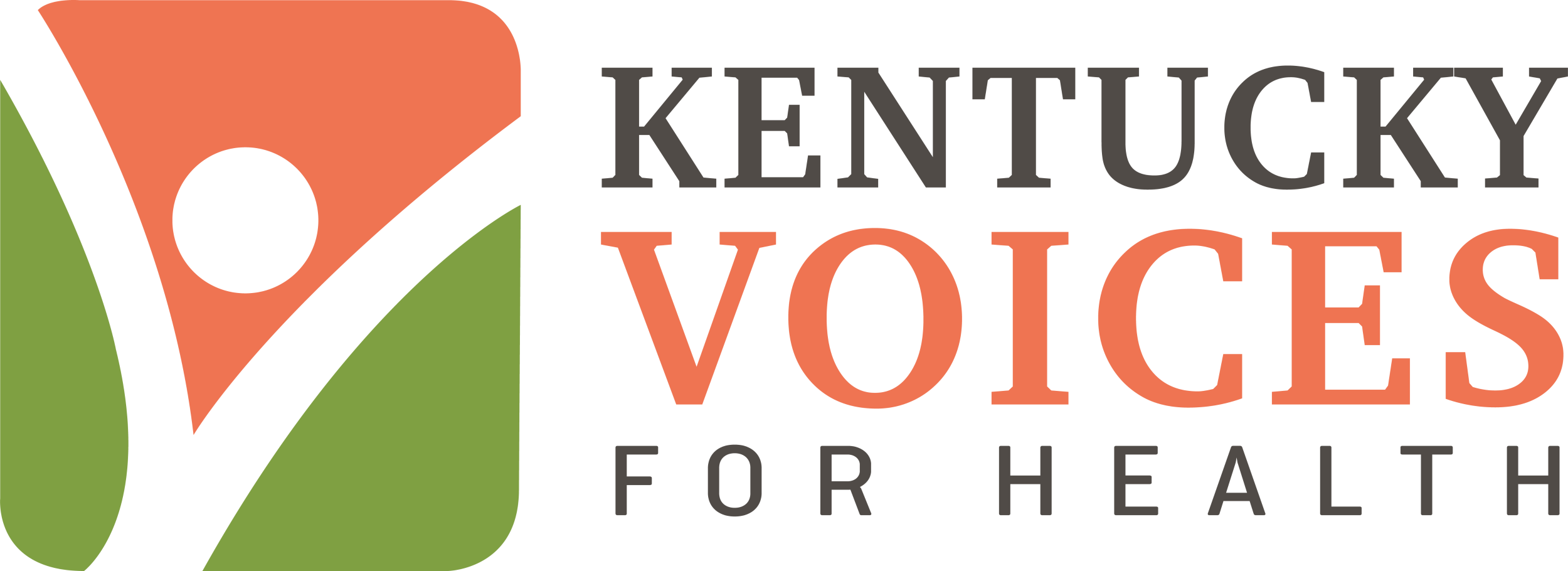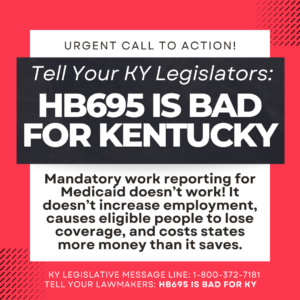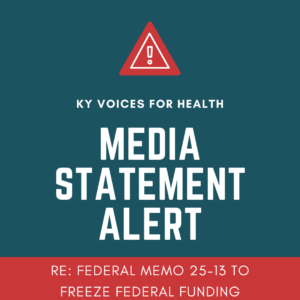In even-year legislative sessions, the Kentucky General Assembly must adjourn Sine Die before midnight on April 15th. The dust has settled a bit in Frankfort and we turn our attention to the 2024 Interim, including Attorney General Russell Coleman’s designation of July 15, 2024 as the effective date for all legislation that did not have another date ascribed in statute or that didn’t have an emergency clause attached. This legislative recap focuses on healthcare and other policies that impact all Kentuckians and Kentucky communities having their basic, health-related social needs met.
This is not a comprehensive highlight reel of ALL legislative activity this year. And yet, buckle up, dear reader. This is one of the beefier Kentucky General Assembly recaps to date.
IMPROVING AND SAVING THE LIVES OF KENTUCKY’S PREGNANT PEOPLE, MOMS, & BABIES
This year, the “Momnibus” bill – originally filed as HB10 by Rep. Kim Moser, but what ultimately passed within SB74 led by Sen. Shelly Funke-Frommeyer– made many health advocates’ dreams (partially) come true. Year after year, Kentucky reports numerous abysmal health outcome rates, and our maternal and infant mortality rates are among them. Unfortunately but unsurprisingly, Black and brown Kentuckians are disproportionately impacted, often at a 2-2.5 higher rate than that of white Kentuckians.
In 2023, a bipartisan and bicameral maternal health working group, spearheaded by State Representative and Health Services Chair Kim Moser, held discussions to focus very intentionally on how to engineer Kentucky-tailored policies that would address and change the root causes of these tragedies. In its final form, not only did SB74 put in place stronger standards for how we report and understand these tragedies through a new state child and maternal fatality review team process, but several crucial, targeted, upstream intervention policies were put in place to prevent these tragedies from happening in the first place.
Medicaid coverage for lactation consultation and supplies
Despite some mid-20th century setbacks, the health benefits of breastfeeding for both a mother and child are fairly well understood. But what is less discussed is navigating the warehouse of supplies and parts, how to handle a clogged duct or mastitis, what to do if you have weak latching, and so on. Many things can go awry that unfortunately make a mother very ill, both emotionally and physically, and at minimum increases the likelihood of breastfeeding abandonment.
Half of all Kentucky births every year are covered by Medicaid, slightly higher than the national average of 42%.
And yet, our breastfeeding initiation rates are only 59% in contrast to the national average of 75%. When you examine rural counties in eastern and western Kentucky, those rates plummet into the 30s.
Half of all Kentucky births every single year are covered by Medicaid, slightly higher than the national average of 42%. And yet, our breastfeeding initiation rates are only 59% in contrast to the national average of 75%. When you examine rural counties in eastern and western Kentucky, those rates plummet into the 30s, and it’s estimated that potentially 42% of all Kentucky babies are never breastfed even once. We can do better to support moms in this journey and Medicaid is uniquely poised to have a meaningful impact on initiation rates, sustained participation in breastfeeding, and ultimately the improved health outcomes for moms and babies.
“Pregnancy” is now a qualifying event for healthcare coverage enrollment
Believe it or not, even with thousands of Kentuckians using commercial health plans for their insurance coverage, and an additional 1 in 3 Kentuckians using Medicaid, there are still some Kentuckians who remain uninsured. Thanks to Momnibus, Kentuckians who become pregnant outside of traditional Open Enrollment periods and who do not otherwise qualify for public assistance programs, can now enroll in healthcare insurance for the duration of their pregnancy. Momnibus fixes this gross oversight in our coverage basics. Beginning in January 2025, pregnancy will now be a qualifying life event when enrolling in healthcare insurance. A provider must submit confirmation of the pregnancy to the health plan and coverage will begin no later than the first day of the first calendar month when the pregnancy began. Eligible health plans include: school (college) plans, QHPs on the Marketplace, and “non-grandfathered” individual plans.
Imagine yours or someone else’s entire pregnancy with no prenatal care, no insurance and simply going into labor having no idea if there are or have been complications with you or the baby. Having just lived through a high risk pregnancy myself, it’s terrifying to imagine. By making pregnancy a qualifying life event, more of Kentucky’s pregnant people, (who would have otherwise in many scenarios forgone costly, uninsured prenatal care), will now have the coverage they need and deserve throughout their pregnancy and birth.
By making pregnancy a qualifying life event, more of Kentucky’s pregnant people, (who would have otherwise in many scenarios forgone costly, uninsured prenatal care), will now have the coverage they need and deserve throughout their pregnancy and birth.
New maternal health “Lifeline for Moms”
Perinatal mood disorders affect thousands of new moms every year, and about 1 in 10 dads, which is often overlooked due to the sheer number of moms in need. We also still live in a society that places the default burden of newborn parenting on moms, and the stigma for men is to “be tough” and “take it like a man”, but in reality, men (especially new dads) are susceptible to perinatal mood disorders, too.
Thanks to Momnibus, there will be a new official hotline for healthcare professionals to use to help patients in their care throughout pregnancy, birth and postpartum. This dedicated line will be fully staffed by Kentucky behavioral healthcare professionals, 8a to 5p ET Monday through Friday. Providers will be able to call and seek live guidance, access resources, and expedited referrals for patients in need of behavioral health support.
Although new funding will eventually be needed, the Cabinet has thankfully already secured a $750,000 grant devoted to the initial rollout of the lifeline. Regulations from the Cabinet will be promulgated this year to begin the development and rollout of the new lifeline; official launch date TBA.
More HANDS on deck! HANDS program expanded
When we talk about wrap-around support, a welcome mat approach to Kentucky’s safety net programs, “meeting people where they are”… very few programs actually walk this walk in real terms in the way that the HANDS program does. Kentucky’s HANDS program (Health Access Nurturing Development Services) is a robust, very effective tool for expectant and new families. HANDS services will officially be expanded to age 3 and with more telehealth flexibilities (HANDS already specializes in home visitation services). Additional education for lactation support and services, as well as SIDS (Sudden Infant Death Syndrome) will be incorporated into their already very thorough programming. HANDS is voluntary, available in every county at the county’s respective health department, and is a powerful catalyst in building safer and healthier homes for new babies entering the world.
Another Momnibus delivery
Doula care and services have only recently been discussed in public forums in Kentucky; primarily the Commission on Race and Access to Opportunity. Doulas have a very hands on and unique approach to support their pregnant, birthing and postpartum clients, and speaking from personal experience, I cannot underscore enough the value they ”deliver” to the table. Momnibus requires the Cabinet to organize a study and submit a report of recommendations regarding doula care and services in Kentucky to the legislature by December 1st. Immediately following Sine Die adjournment in April, we learned from the Cabinet that this study will be facilitated via contract to an external vendor, led by the Cabinet, and not an internal report.
Doula care and services are known to lower C-section utilization rates, increase breastfeeding initiation rates, and present overall improved health (including behavioral health) outcomes for birthing families.
Doula care and services are known to lower C-section utilization rates, increase breastfeeding initiation rates, and present overall improved health (including behavioral health) outcomes for birthing families. There are still areas to improve care for Kentucky’s growing families, such as removing prior authorizations for many perinatal needs, even for those using postpartum Medicaid coverage. However, Momnibus is moving the needle significantly this year and will prove to be both life-changing and lifesaving policy. KVH is immensely grateful to Senate and House Majority leadership, as well as the rank and file supportive members that we were happy to work with as Momnibus navigated its way through the legislative process. We are proud to have been a small part of such a big journey.
Additional healthcare updates of note
The legislature continued its prior authorization reform efforts with moves that expedite lifesaving care for Kentuckians and alleviate the administrative burden for providers. HB534 prohibits Medicaid Managed Care Organizations (MCOs) as well as commercial insurance providers from using utilization reviews, or “prior authorization” for individuals accessing Naloxone. This beats a similar drum as we have seen in past sessions like SB51 from 2021, prohibiting prior authorizations for certain prescription drugs (Buprenorphine, Methadone, and Naltrexone) when used to treat alcohol or opioid use disorder.
When an individual seeks help for their addiction, any delay in treatment can be detrimental to their recovery. Prior authorizations that take 3-7 days clearly delay care and disrupt treatment plans for those already in recovery. HB534 this year and SB51 previously removes a significant barrier for treating alcohol and opioid use disorders that will support recovery for thousands of Kentuckians. And yet, robust prior authorization reform is still needed. We can look to the implementation of these bills as a guiding light to help inform the bigger conversation. While of course initially designed with the best of intentions, many PAs are simply antiquated and lead to delays in care, care abandonment, and in isolated circumstances, disabilities or even death of Kentucky patients. KVH is looking forward to continuing the work to bring awareness and policy opportunities to light alongside the Kentucky Medical Association, state and local business leaders, and many others.
Maintaining routine immunization access for children
Throughout the pandemic, pharmacists were an essential part of our state and national recovery, administering immunizations to thousands of Americans and helping propel us out of COVID lockdowns. Kentucky’s regional clinics, often facilitated by Kroger Pharmacy or the University of Kentucky, were instrumental during Operation Warp Speed. Thanks to the Public Readiness and Emergency Preparedness (PREP) Act, pharmacists were given the ability to vaccinate children on all routine immunizations down to the age of three (3), otherwise, they would have been restricted in Kentucky to only offer vaccines to children nine (9) years and older.
Thanks to the efforts of Rep. Danny Bentley, advocates, the Commonwealth’s pediatricians, pharmacists and other public health frontlines, the “KY PREP Act” passed via HB274. The Kentucky PREP Act maintains that Kentucky pharmacists may continue offering routine immunizations to children down to the age of five (5), and of course for Flu and COVID shots, they can continue administering these immunizations annually down to the age of three (3).
We live in a fast-paced world, and access to healthcare is harder than it should be for many families. Pharmacists have become increasingly important for our children to receive their booster shots for many immunizations – Measles, Flu, COVID, Tetanus and so on. Many families still face obstacles in finding immunizations in their area, and some families have issues obtaining their children’s routine shots during the traditional workday. My family is insured, we have reliable transportation, my job allows me to easily take personal time for my daughters’ appointments, my husband and I are extremely supportive and want them to be up to date on their routine immunizations, and we have a permanent medical home and go routinely for pediatrician well-checks. And yet, I can personally attest to facing difficult circumstances and delays in securing immunizations. All this is to say, it is often more convenient for parents and caregivers to swing by a CVS, Walgreens or local pharmacist at 6:30PM on a Tuesday as they head home from swim practice, get their child’s shots, and not have to disrupt their entire day. Pharmacists will be hugely impactful, especially to rural communities who already face provider shortages.
While HB274 is a huge success for immunization access, it did, unfortunately, provide another opportunity for anti-vaccine rhetoric to get a foot in the public policy door. Multiple bills are filed each year that would restrict access or outright prohibit many health safety policies from remaining in place as the public health standard. SB295 was one of these bills and was temporarily added to HB274 as an amendment, banning COVID-19 immunization requirements and mandates. In its original form, it would have also banned modRNA and mRNA vaccine requirements as well, which would have likely stifled and thwarted immunization development for viruses still progressing and pandemics yet to be. The polarizing effects of the pandemic around immunizations has trickled into suppressing public health 101 basics. Claims that are largely false or are outright conspiracy theories, many have been publicly debunked – all aim to motivate by fear, rather than utilize evidence-based information. While SB295 did not pass this year, keeping a close eye on these harmful policies in the months to come leading up to the 2025 Regular Session will be important since clearly the legislative intent is still present with current elected officials.
A few more miscellaneous wins!
ALZHEIMER’S EDUCATION
SB211 would have required nurses and physician assistants who primarily work with Kentuckians ages 50 years and older to undergo continuing education (CE) related to the detection and treatment of Alzheimer’s and other forms of dementia. While SB211 did not pass, the provisions of this bill did make it through as an amendment to HB459 in the final days of session.
In 2023 KVH helped to protect dental, vision and hearing services for individuals using Medicaid for their healthcare. The Alzheimers’ Association of Kentucky and other organizations helping our aging population in particular, became quick allies. Arguments were quickly reinforced by the latest understanding that everyone’s hearing will deteriorate; it’s not an ‘if’, but a ‘when’. And we also now know that hearing impairment, especially when left untreated, has alarmingly high incidence rates when it comes to the aging population’s cognitive decline. Vision impairment and poor oral health are also contributing factors to deteriorated cognitive function.
The more we understand about our brains, the more our standards of care should adjust to protect them. The incorporation of continuing education for the detection and treatment of Alzheimer’s and other forms of dementia will be monumental for aging Kentuckians. HB459 will have a meaningful impact on identifying cognitive impairment or decline in patients sooner, affording them more robust treatment plans and hopefully an overall improved quality of life.
SUICIDE PREVENTION
For several consecutive years, Kentucky policymakers have placed intentional energy into combatting suicide through prevention. This helps in not only the long and arduous battle we have to remove stigma, but it simultaneously opens doors for higher quality, affordable, and equitable access to care, and hopefully, funding programs developed from evidence-based best practices.
HB30 is another perfect example of this suicide prevention continuum. HB30 establishes a suicide prevention program for military service members, veterans and their families to be created at the Kentucky Department of Veterans Affairs. The program will raise overall awareness, and ultimately help connect at-risk individuals to behavioral health resources tailored to their needs.
In 2019, Kentucky’s veteran suicide rates (32.8 per 100,000) surpassed state and national rates for non-veterans. Suicide stands as the leading cause of violent death among veterans, particularly among older and rural-dwelling veterans. While there are a myriad of behavioral health resources and programs, historically inadequate funding and awareness leave many falling into gaps. HB30 creates a path for uniquely tailored resources for military families throughout Kentucky.
Another suicide prevention milestone is a $1M investment in Kentucky’s budget for suicide prevention among farmers and agricultural workers. Our farm families are another family population in Kentucky who continue to face alarmingly high suicide rates.
There is much work to be done.
In a single month’s time during April 2024, it was reported that in Pike County, KY, at least 8 individuals, mostly male, ranging in age from their 30s to their 80s, died by suicide, predominantly by using firearms.
There is much work to be done. In April 2024, it was reported that in Pike County, Kentucky, at least 8 individuals, mostly male, ranging in age from their 30s to their 80s, died by suicide, predominantly by using firearms. The entire population of Pike County is 56,286, meaning, at least 1 death for every 7,000 individuals in the entire county, and this is simply reflective for a single month’s known deaths by suicide. While SB13 did receive two public hearings, the legislature did not advance the bill that could have potentially placed upstream interventions to curb these exact tragedies from happening in the first place.
Nearly 80% of individuals considering suicide express some sign of their intentions to others. SB13 is also known as The “CARR” Act, or, the Crisis Aversion and Rights Retention Act, and would have allowed for the temporary transfer of firearms away from individuals on the brink of personal crisis. This would allow communities to have a very specific tool in the toolbox in order to intervene before a loved one misuses a firearm.
States who have already implemented a similar process for the temporary transfer of firearms have seen rates of suicide by guns drop 7-14%. And following more than 30-years’ worth of studies, we know that 90% of mass shooters engaged in suicidal behavior before their attacks. CARR would indirectly support the prevention of mass gun violence as well.
Furthermore, while Kentucky’s 9-8-8 program continues to survive on meager means, and is, in fact, very efficiently being overseen by real Kentucky mental healthcare professionals (and not out of state providers), the state legislature must prioritize and meaningfully invest in 9-8-8 soon. The national roll-out of 9-8-8 occurred in July 2022, to date its services have supported more than 125,000 individual Kentuckians, and yet Kentucky has made minimal progress in providing the robust support the program ultimately needs on the state level.
Despite a few setbacks, we will continue to dedicate our focus on policies that adequately and robustly address public safety, affordable housing, and many other barriers that impede our vision for an equitable community. HB5 was an alarming affront and one of those “setbacks” this year, KVH and many of our partners were distraught to see policymakers place criminal penalties on Kentuckians facing homelessness, many of whom are also veterans and young moms, instead of placing robust reform and funding allocations towards the development of affordable housing. State law seems to be (finally) learning its lessons in targeted, upstream interventions to improve health outcomes, and the same logic must apply to the root causes of homelessness, but HB5 represents a huge step backward. Housing is, in fact, healthcare, and every Kentuckian deserves to have their basic, health-related social needs met, period end of story.
BUDGET
The state’s budget should be thought of as a living, breathing, and moral document — one that reflects our priorities as to how and where and to whom public coffers are sent. While the baseline budget for Medicaid was ultimately fully funded, a bifurcation in those appropriations temporarily created confusion and stress. More than $60M was designated in a separate budget bill rather than a single sum appropriated in the main budget vehicle.
Other critical investments were made through an increase in the number of Medicaid waiver programs this year, as well as additional investments in our healthcare workforce. Here’s a few additional Medicaid funding highlights:
- $61M to add 1,925 more people (“slots”) in Home and Community-Based Services 1915(c) waivers
- $132.1M for new Serious Mental Illness (SMI) waivers specific for:
- Substance Use Disorders (SUD),
- Behavioral health needs among the reentry population (coverage would begin 60-90 days prior to release), and
- A new Children’s Waiver to cover autism spectrum disorders, severe emotional disturbance (SED), or co-occurring intellectual disabilities and chronic health conditions.
- $5.5M to expand Assisted Outpatient Treatment via Tim’s Law to overcome the vicious cycle of hospitalization → incarceration →homelessness.
Budget continuation, and where forward facing concerns should focus
Advocacy around state investments for early childhood education to support Kentucky families was a new priority for KVH this year. The improved health outcomes, well being and educational attainment of a child is inextricably intertwined with a family’s access to affordable, high quality child care. The legislature allocated support for:
- $70M per year to the Child Care Assistance Program (CCAP), including a 80% reimbursement rate for families that are eligible.
- $16M per year for the CCAP Income Exclusion for providers to allow their employees to receive a subsidy for their own children. Throughout the pandemic, this proved to be a wildly successful workforce retention and recruitment practice that Kentucky led the nation in trailblazing.
- The sustainability of the Employee Child Care Assistance Partnership (ECCAP), as well as an innovation grant for the Cabinet to offer start-up funds for new types of child care programs.
- Thanks to HB561, local governments will also be able to reassess local zoning restrictions that might be hindering the economic growth and viability of our providers community to community.
One-time use federal funding will be running out later this calendar year that could result in at least a third of Kentucky’s 34,000 children receiving CCAP will no longer be eligible.
The domino effect of family budgets that are already strained could result in parents leaving the workforce, and as children leave the provider network, the shoestring budgets that many of them face will cause hard decisions about whether or not to limit their capacity or even shut their doors.
However, one-time use federal funding will be running out later this calendar year that could result in at least a third of Kentucky’s 34,000 children receiving CCAP will no longer be eligible. The domino effect of family budgets that are already strained could result in parents leaving the workforce, and as children leave the provider network, the shoestring budgets that many of them face will cause hard decisions about whether or not to limit their capacity or even shut their doors.
We know that 90% of a child’s brain development, the foundation for the rest of their lives, happens before the age of 5. Meeting the basic, health-related social needs of working parents and families means state investments can and should impact access and affordability to early childhood education and truly give our children the support they need to thrive. The financial burden of making these upfront investments cannot be solely carried on the backs of young working families who are often not at their maximum earning capacity at the time their children are youngest. The majority of the current workforce is also the same group of people experiencing the lowest amount of generational wealth in our nation’s history, so we truly are at a healthy workforce crossroads.
The responsibility of raising healthy and bright children is on all of us.
It’s a policy choice whether or not to invest in upstream interventions that support the whole health and development of a person.
The responsibility of raising healthy and bright children is on all of us. It’s a policy choice whether or not to invest in upstream interventions that support the whole health and development of a person. Our children, the hardworking families who love them, and our local economies who foster them all deserve more. As we inch dangerously closer to pandemic-era federal support lapsing, our lawmakers in Frankfort must pay close attention so children and working parents aren’t directly harmed.
Additional barriers still need to be addressed
There continues to be ample opportunity for the state legislature to impact the affordability, deliverability and accessibility of healthcare in meaningful ways. In order to better inform policy decisions, the establishment of a Kentucky All-Payer Claims Database (APCD) and finally addressing network adequacy must be prioritized. Hospitals and healthcare systems would not be required to submit their charges (which are often negotiated and discounted), but, by seeing actual claims paid, we could begin to understand cost disparities and gaps more clearly. Non-Emergency Medical Transportation (NEMT), decisions around Certificate Of Need (CON), and the expansion of freestanding birthing centers in Kentucky are all additional pathways to improved health outcomes and ones that can be positively impacted with better data to inform the decision-making around these policies.
KVH supports establishing a separate committee or task force to solely focus on Medicaid policies, be it a new Board or the reinstatement of the previous Medicaid Oversight and Advisory Committee. Public conversations are needed to shed light on the fact that reimbursement rates, for example, can and should be improved for providers. If lawmakers were to put in statute that rates cannot go below the “floor” that the Cabinet designates and regularly updates, then more providers would be willing to support our Medicaid families. But, when MCOs continue to negotiate these rates below the Cabinet fee-for-service schedule, providers will never be made whole and cannot calculate that type of risk into their personal business finances. While hypertechnical, these conversations deserve a public platform so all parties can weigh in and contribute.
Staring Directly Into The Legislative Interim Sun
I recently saw an online newspaper poll for “What grade would you give the Kentucky General Assembly?” and while collectively we will never fully agree and align, I was a little surprised to see such strong negative feedback. While setbacks like the one we saw in HB5 did happen, that course can hopefully be corrected in sessions to come to decriminalize homelessness – we are better than what HB5 suggests. Policymakers should pay close attention to what real Kentuckian constituents are saying and requesting, work to find evidence-based solutions to real problems Kentuckian families face, and give overall less credence to the “think tank” expertise du jour. We saw once again in 2024 a very real threat of increasing barriers for some of our most vulnerable neighbors. Such dark clouds makes it incredibly complicated to celebrate the historic investments in early childhood education, the adoption and increase of prenatal care, and a robust state budget that not only reinforced the baseline Medicaid budget, but placed momentous and much-needed waiver slot increases.
But, I do ultimately find gratitude this year as a health advocate, as a mom, and as a Kentuckian, in the intentional efforts the 2024 legislature placed in advancing health equity and meaningful, targeted, upstream policies to improve health outcomes for every Kentuckian this year, and especially for our moms and babies. Policy is never a “one and done.” Advocacy is a long game, so we will always be back to hustle more evidence-based solutions so that every person can access affordable and high-quality healthcare… but we should give credit where credit is due. From the Momnibus to increased Medicaid waiver slots and veteran tailored behavioral health services, to improved Alzheimer’s diagnosis education and stronger routine immunizations access for kids – and everything in between – many 2024 policies this year will prove to be both life changing and lifesaving. Tip of the hat to you, #kyga24.
Tip of the hat to you, #kyga24.
From the Momnibus to increased Medicaid waiver slots and veteran tailored behavioral health services, to improved Alzheimer’s diagnosis education and stronger routine immunizations access for kids – and everything in between – many 2024 policies this year will prove to be both life changing and lifesaving.
To learn more about the author, visit: https://kyvoicesforhealth.org/our-team/.




